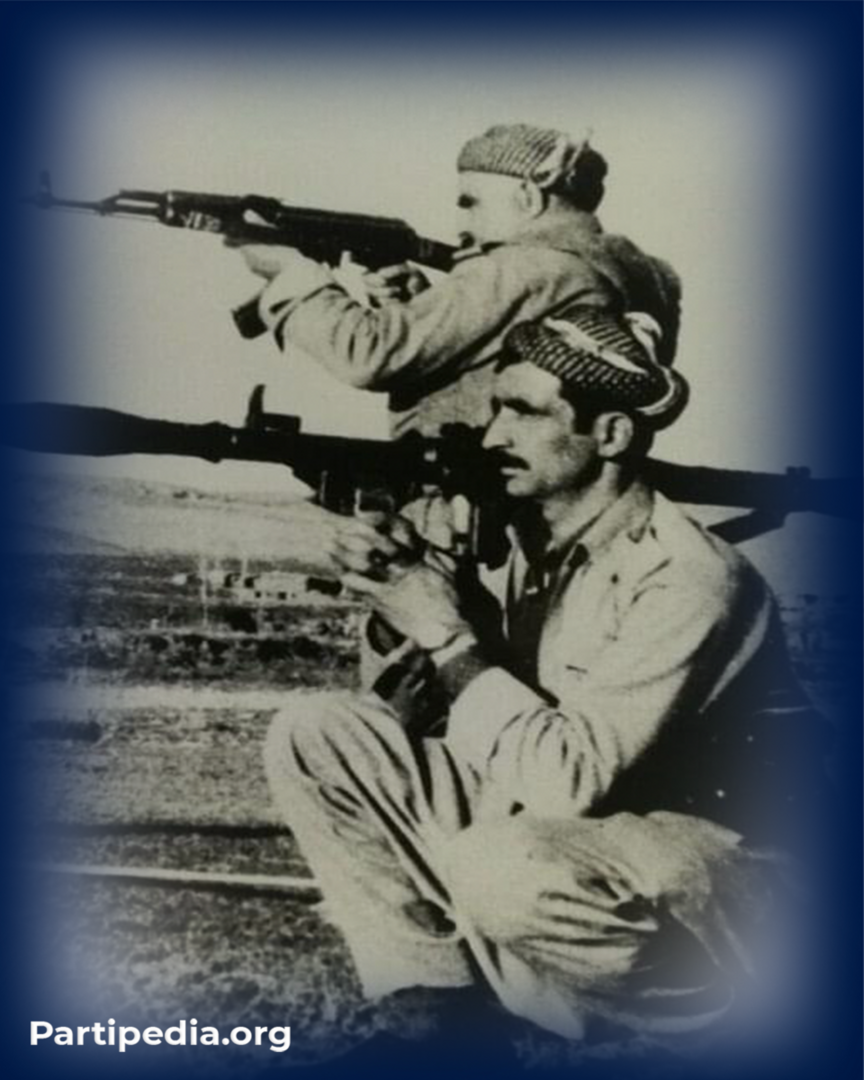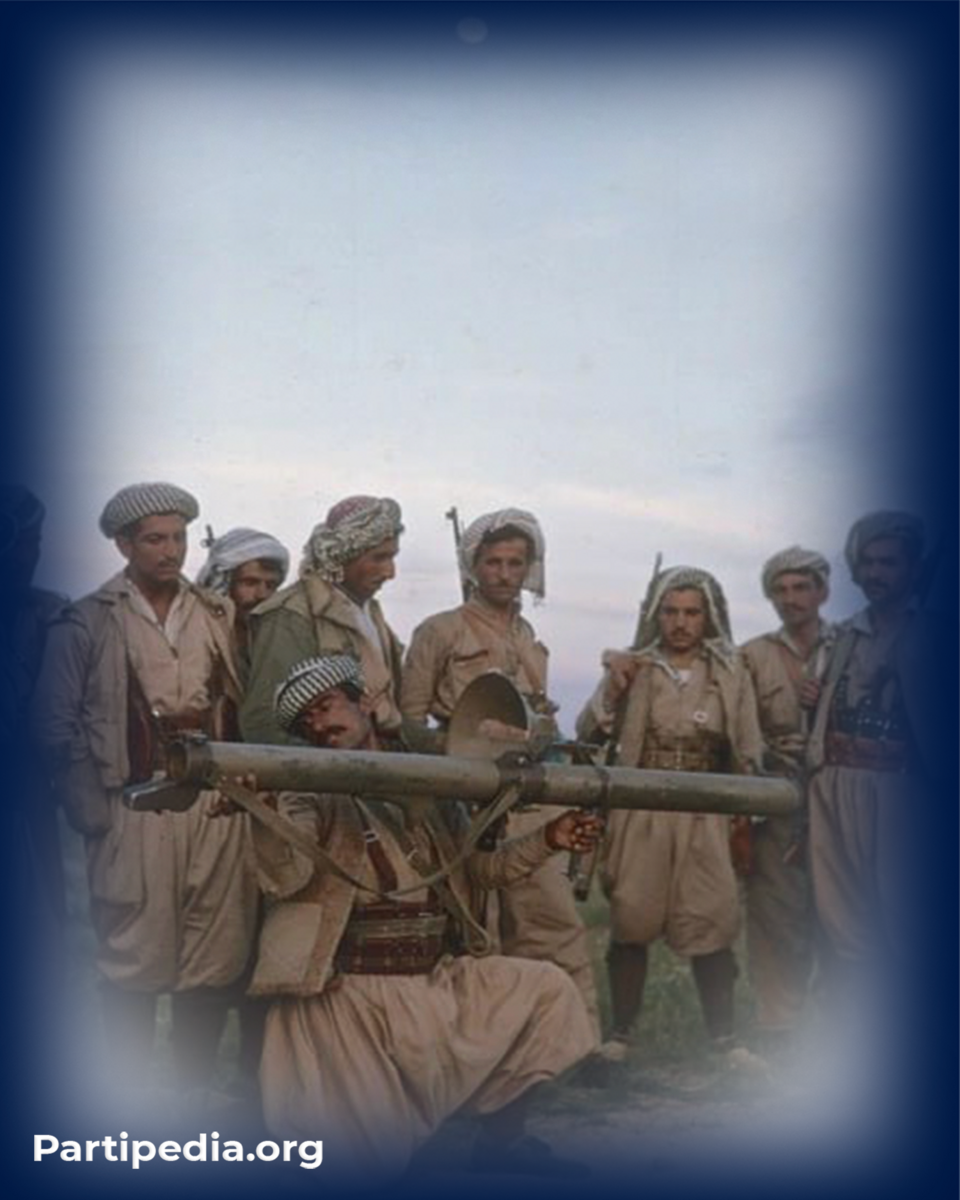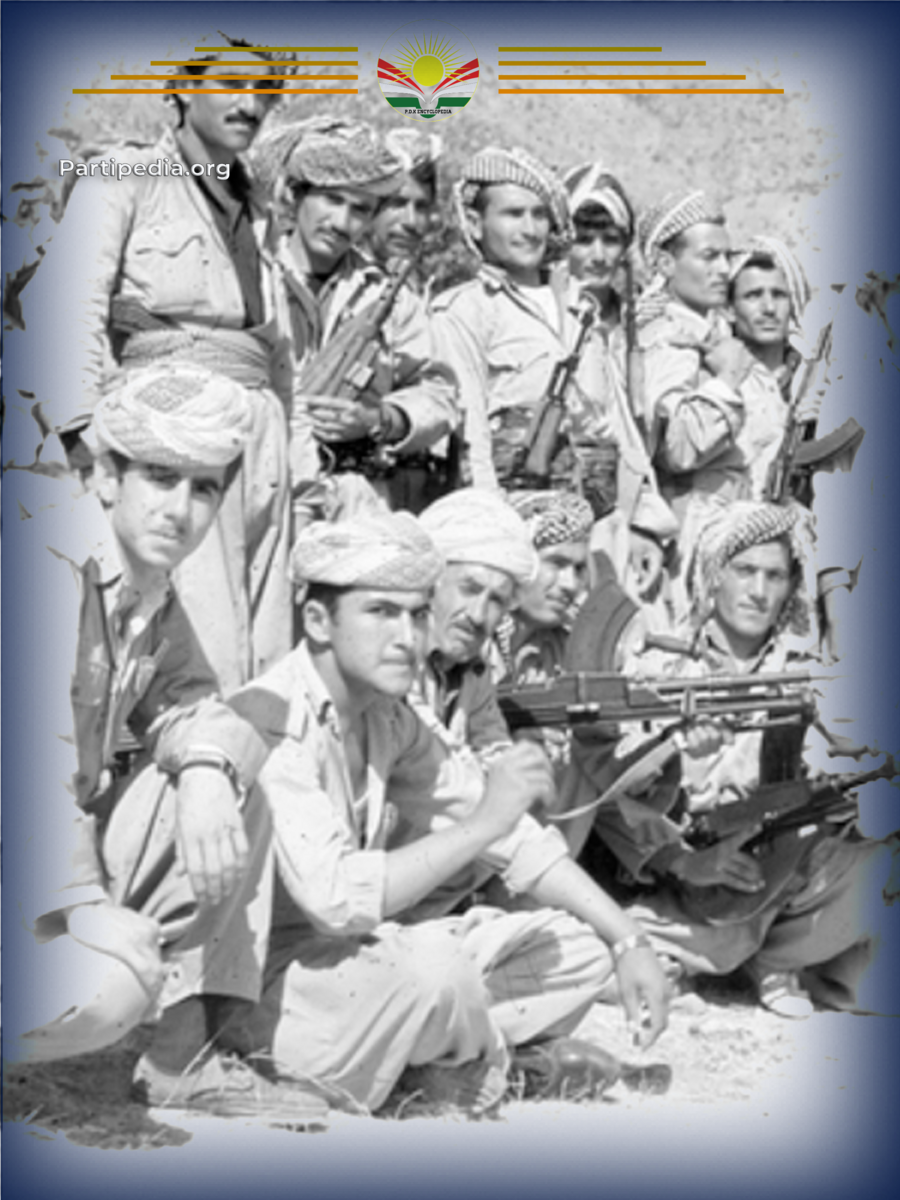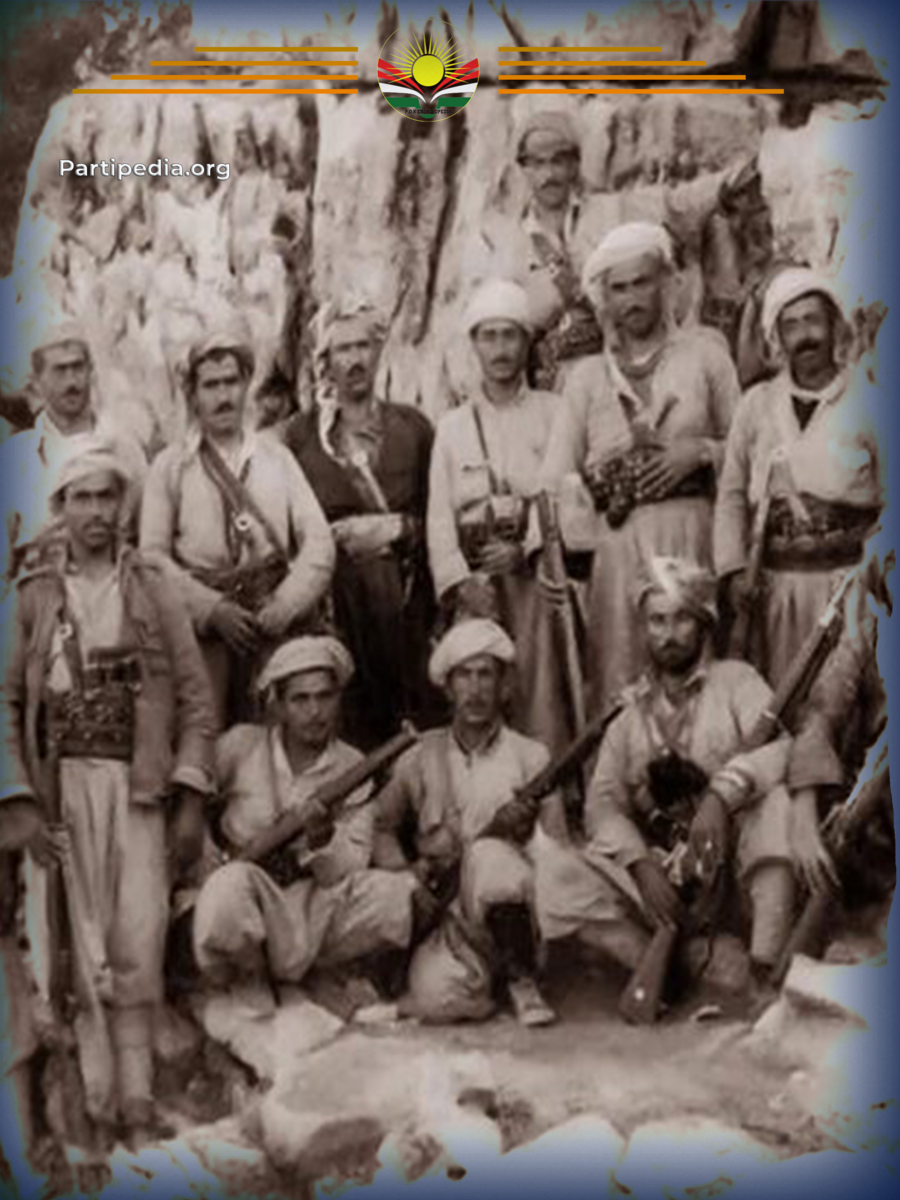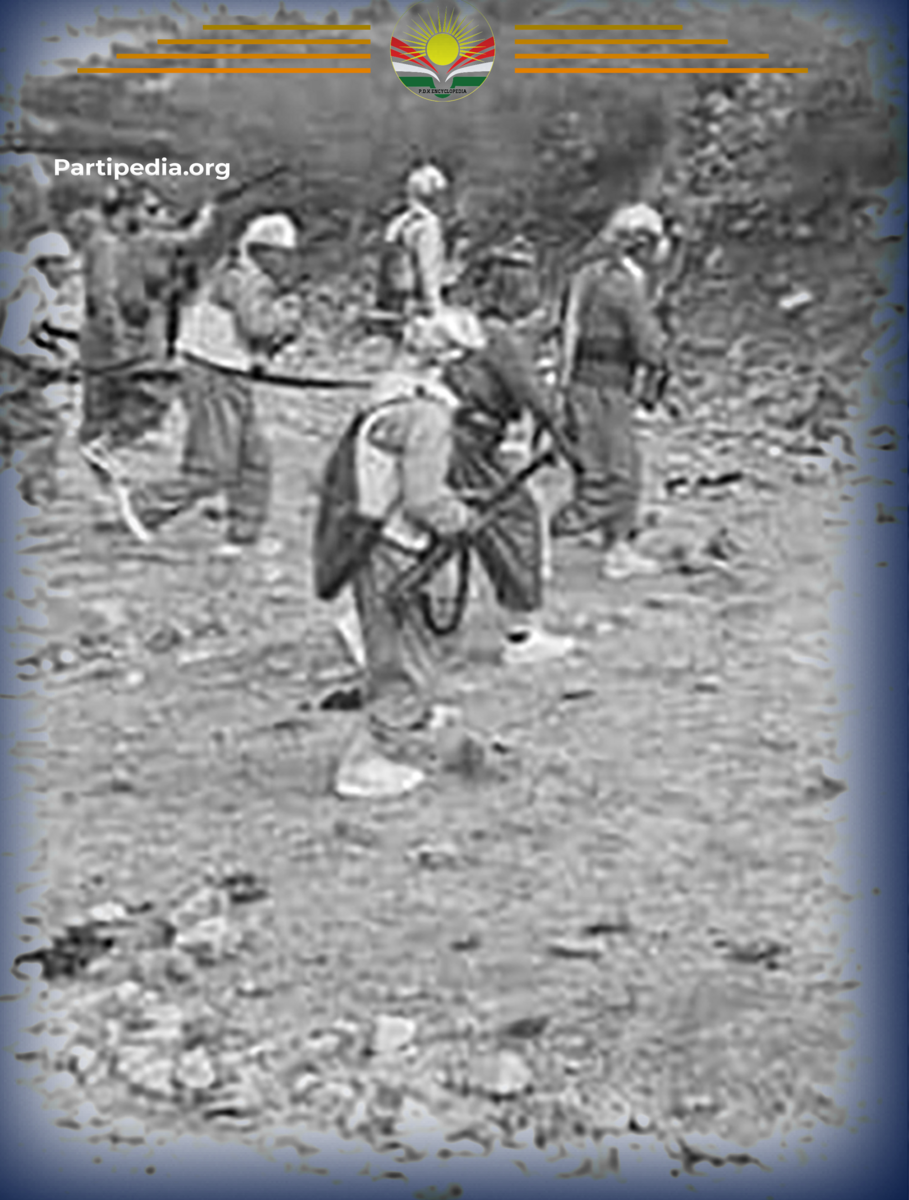After the signing of the Algiers Agreement on March 6, 1975 between Iraq and Iran, which was carried out as an international plan against the Kurdish liberation movement and the threw the fate of the Kurds in South Kurdistan into a humanitarian turmoil, the Ba'ath government thought it was over and they brought an end to the Kurdish movement, but they were wrong. Shortly, in May 1976, the armed revolution resumed and hope and confidence returned to the Kurdish people. This step is considered a new turning point in the Contemporary Kurdish History.
After that period, the Peshmerga forces were sent back to the depths of South Kurdistan by the revolutionary leadership. Then the cadres and Peshmergas of the Eylul Revolution who remained in Kurdistan and had not fled to Iran or Turkey were contacted to reorganize themselves and rekindle another stage of the revolution in a partisan manner and do Peshmarga operations. They should also convey the message of the resuming the revolution and defending the rights of the Kurdish people to the leaders of the Ba'ath regime.
One of the activities that the Peshmerga carried out and was able to cause great damage to the institutions of the Ba'ath government was a partisan activity in Qasrok area of Shikhan district of Duhok province in 1978, after a Peshmerga force managed to reach one of the bases of the Ba'ath regime's fighters and suddenly attacked the base. In a short time, they managed to cause heavy casualties, including killing and wounding a large number of fighters. In this operation, a Peshmerga named Hamid Hafzullah, a skilled cadre of the Kurdistan Democratic Party (KDP), was martyred. After transferring his body, he was buried in Blan Village of Mreba sub-district.
It is worth mentioning that all these activities of the Peshmerga were a frightening message to the leaders of the Ba'ath regime that the revolution will come back to the field of struggle in another form even if it collapses by an international plan and buries all the dreams of those who wish the complete disappearance of the revolution..
Source:
-
مهسعود بارزانی: بارزانی و بزوتنهوهی ڕزگاریخوازی كورد، بهرگی چوارهم، ١٩٧٥-١٩٩٠ شۆرشی گوڵان، بهشی دووهم، چاپی یهكهم، چاپخانهی ڕوكسانا، ٢٠٢١.
-
جهمال فهتحوڵله تهیب: بزوتنهوهی ڕزگاریخوازی كورد له باشوری كوردستان ١٩٧٦-١٩٨٠، چاپی یهكهم، چاپخانهی شههاب، ههولێر-٢٠١٢.
-
غازی عادل گهردی: پێشمهرگهیهك له خزمهت بارزانیدا، بهرگی دووهم، چاپی دووهم، توركیا- ٢٠٢١.




